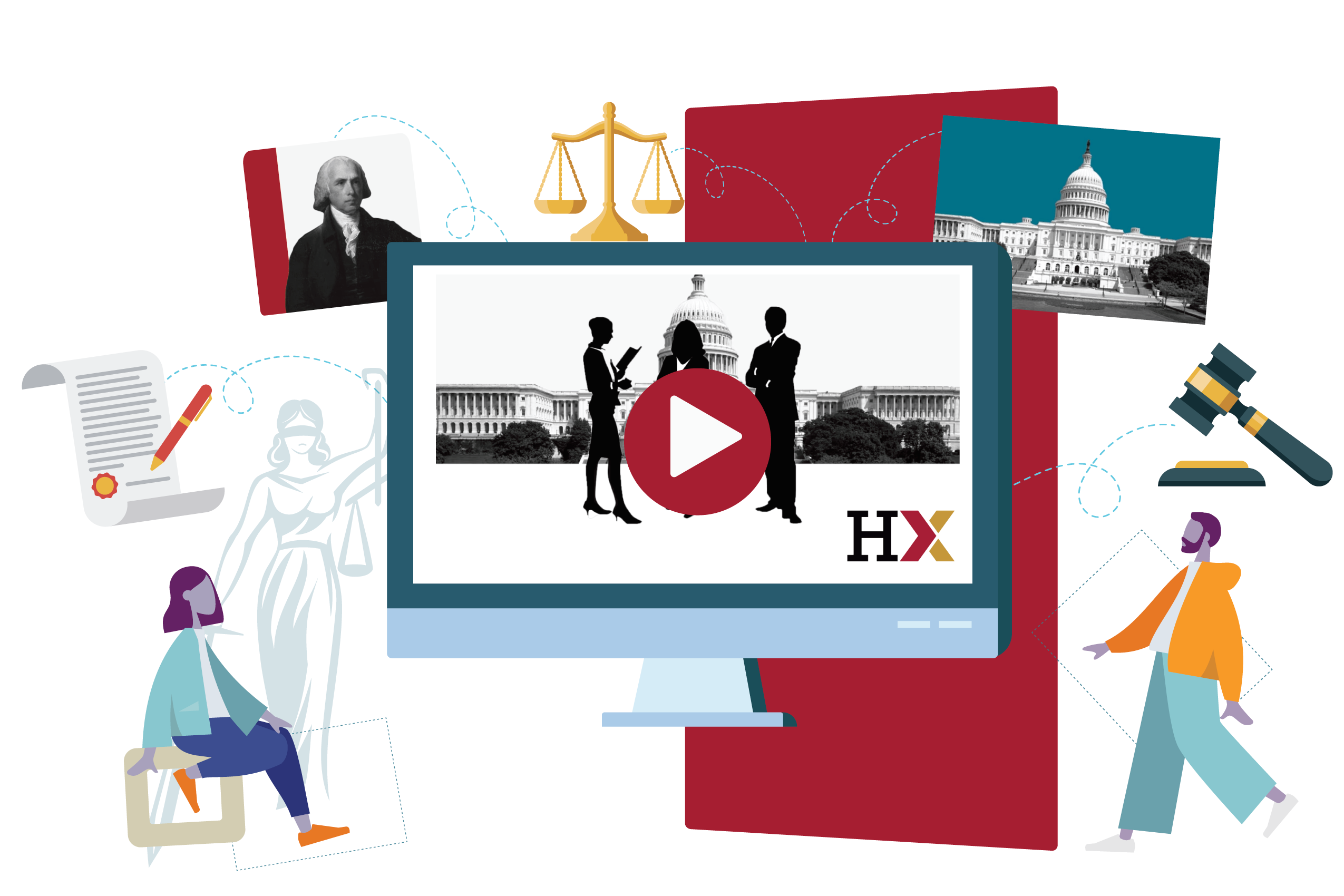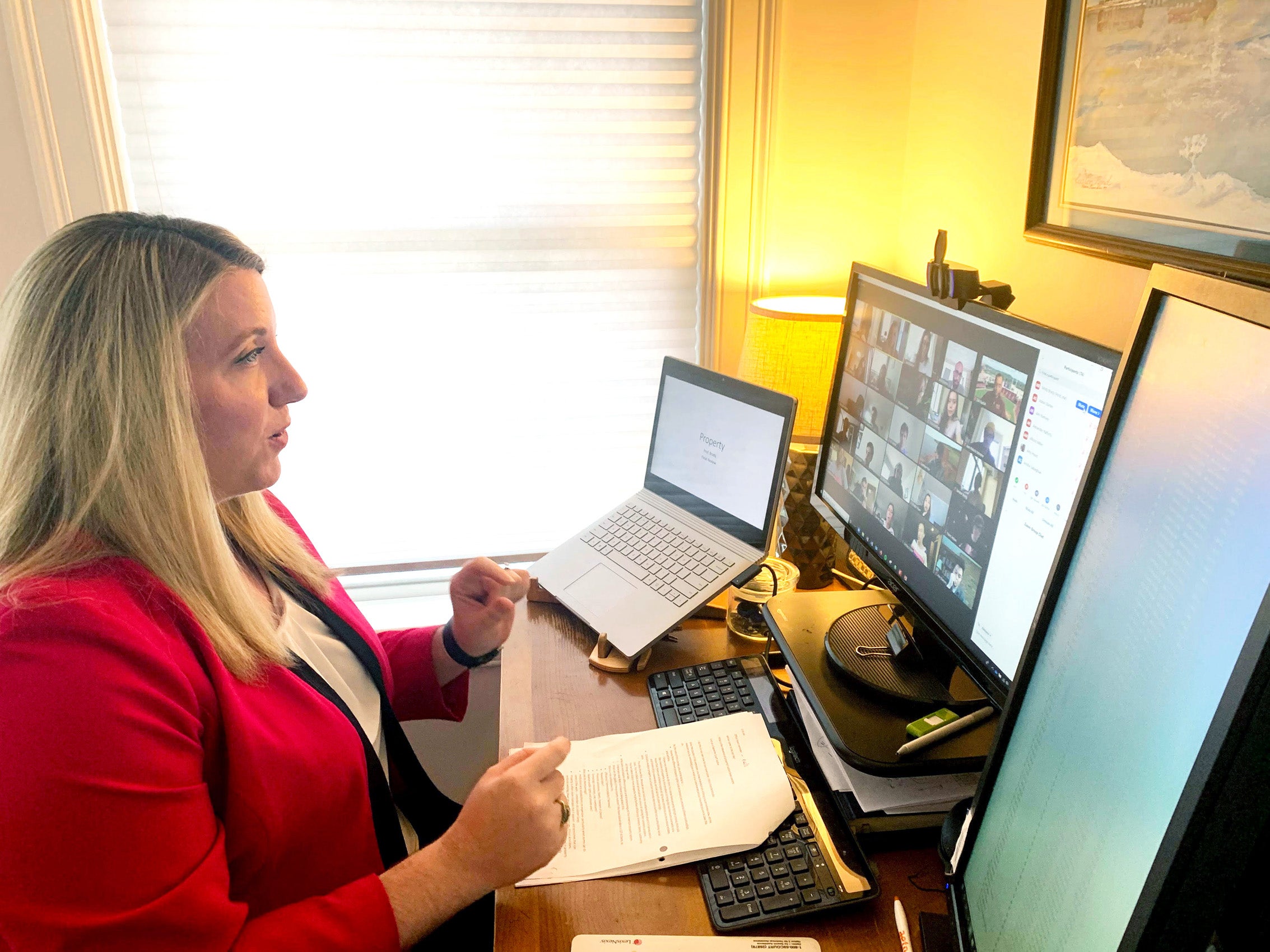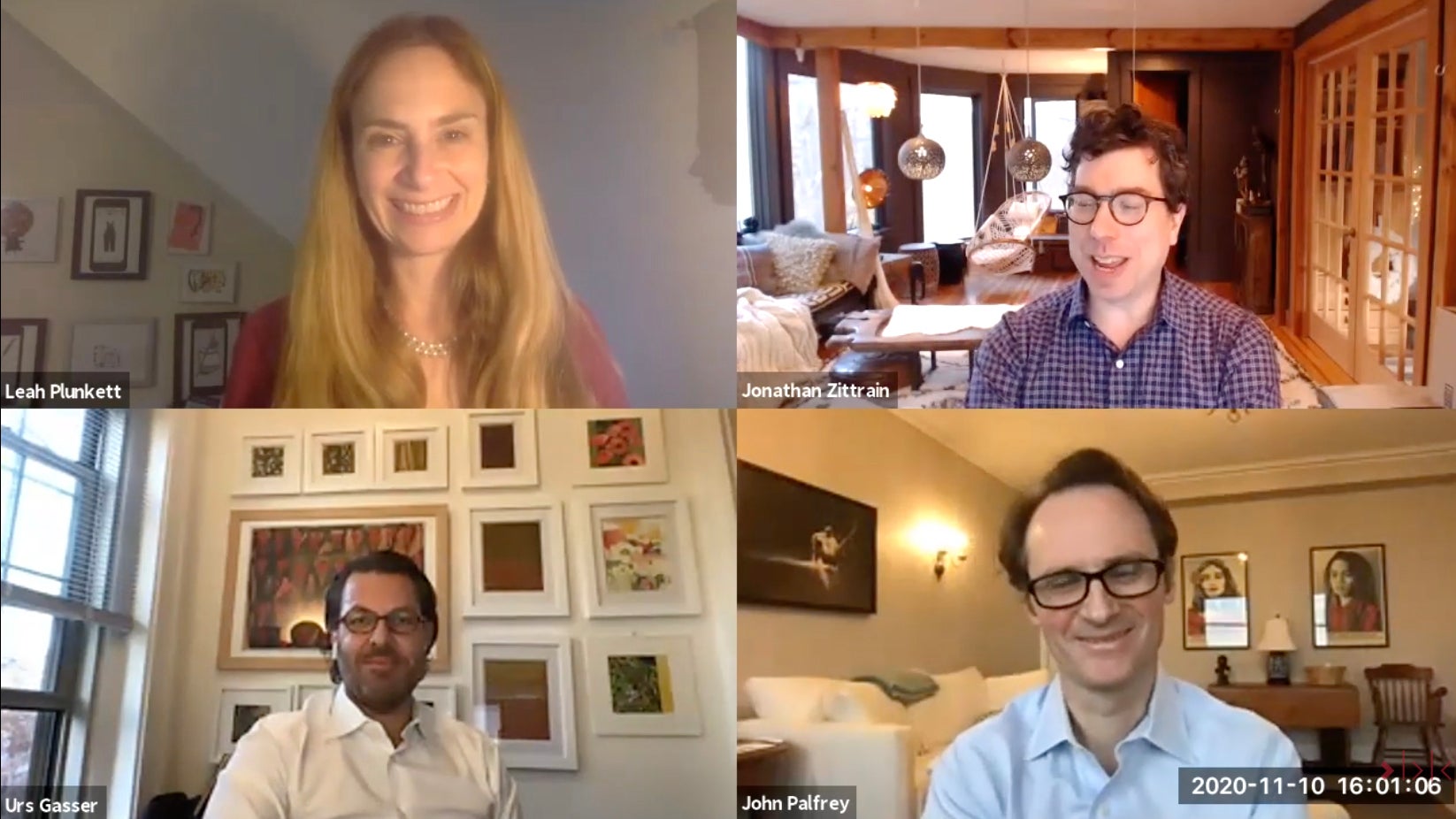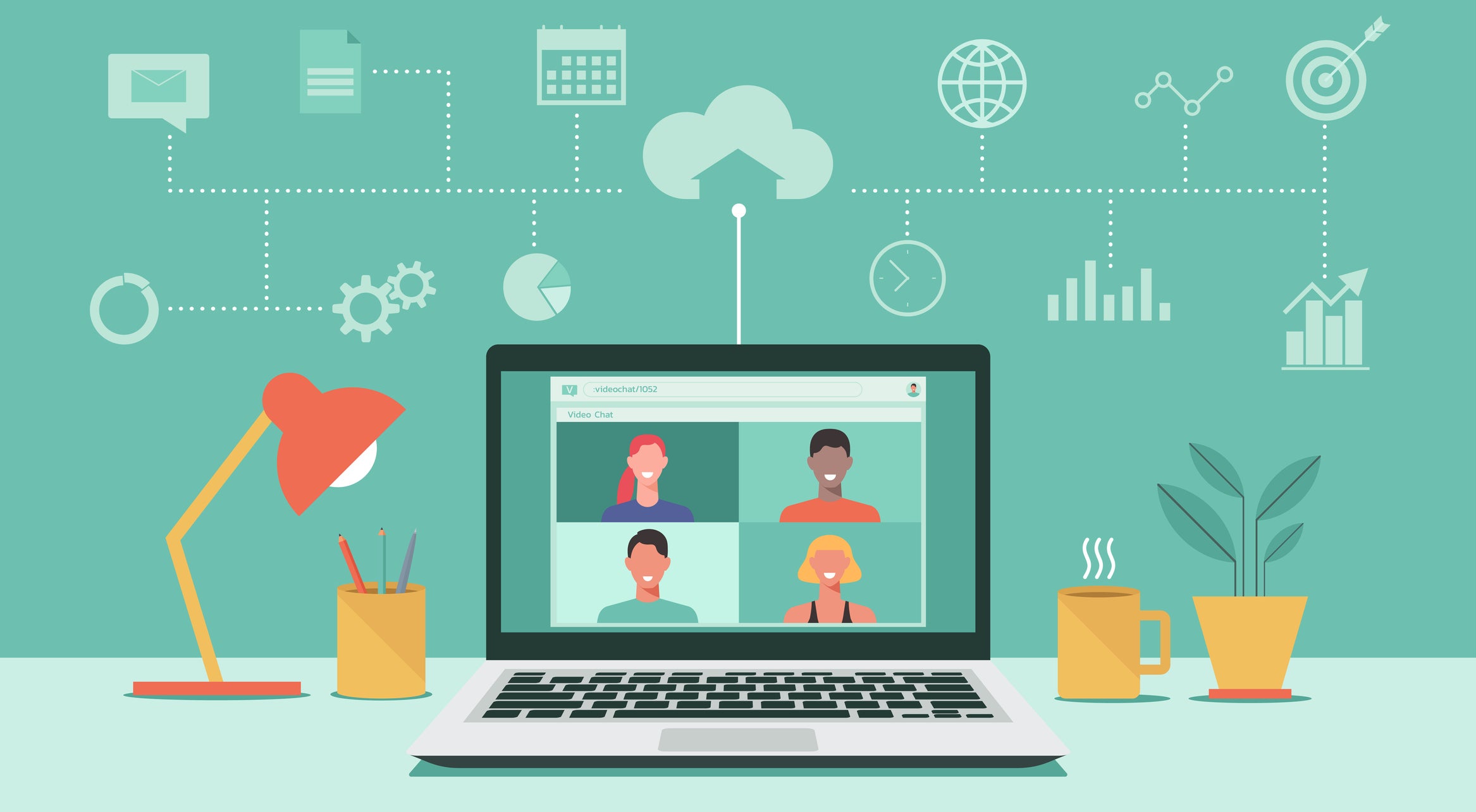People
Leah Plunkett
-
The psychology of ‘sharenting’: Why parents can’t resist talking about their kids online — and what experts say about it
October 16, 2023
I’ve never met Lucy Huber, but I (and the more than 70,000 other people who follow her on X, formerly known as Twitter) know about…
-
Third year of Harvard Law’s Future-L program inspires the next generation of lawyers
September 8, 2023
Now in its third year, Future-L is helping more gifted young people around the country learn about the law, the legal profession — and how they could be part of it.
-
Think about some of your favorite online content on TikTok, YouTube and Instagram. Does any of it feature kids? Illinois’ new first-in-the-nation child labor law…
-
When Mark Zuckerberg shared a photo on Instagram of his family on July 4, two things stuck out: the billionaire CEO wore a striped souvenir…
-
With the recent spate of privacy-focused investigations, government regulators may be looking to send Big Tech a message — and it’s landing in Seattle’s tech-fueled…
-
Amom has been cheered for asking her family not to post pictures of her child on social media. In a post on London-based Internet forum…
-
Sexual Predators Are Grooming Young Teens On Wattpad, A Storytelling App Beloved By Gen Z
October 3, 2022
To the 94 million people that use it every month, storytelling platform Wattpad touts itself as a safe space for education and community on the…
-
“You’re paying my bills,” MJ told the audience, running a finger over her mouth. “$35 for a flash,” one viewer responded. Another asked how much to send to her Cash App. As she posed and pursed her lips, her long blonde hair draped over her tight black bralette, some asked MJ to show them her feet. “I’m 68 and you owe me one,” one attendee told her as more requests piled on. These exchanges did not take place between adults at a nightclub; they took place on TikTok Live, where MJ, who said she was 14 years old, was broadcasting with friends to 2,000 strangers on a recent Saturday night. A Forbes review of hundreds of recent TikTok livestreams reveals how viewers regularly use the comments to urge young girls to perform acts that appear to toe the line of child pornography — rewarding those who oblige with TikTok gifts, which can be redeemed for money, or off-platform payments to Venmo, PayPal or Cash App accounts that users list in their TikTok profiles. It’s “the digital equivalent of going down the street to a strip club filled with 15-year-olds,” says Leah Plunkett, an assistant dean at Harvard Law School and faculty associate at Harvard’s Berkman Klein Center for Internet & Society, focused on youth and media. Imagine a local joint putting a bunch of minors on a stage before a live adult audience that is actively giving them money to perform whatever G, PG or PG-13 activities they request, she said. “That is sexual exploitation. But that's exactly what TikTok is doing here.”
-
For a second year, Harvard Law to offer pre-term ‘Zero-L’ course to other law schools for free
May 20, 2021
Harvard Law School today announced plans to make its online, pre-term course for incoming law students, Zero-L, available to other U.S. law schools for free again for a second year as law schools emerge from the pandemic.
-
Going remote
March 3, 2021
Ten Harvard Law School faculty share a behind-the-scenes look at their Zoom studios and the innovative approaches they employed to connect with students.
-
On the bookshelf
December 15, 2020
In the unusual year of 2020, Harvard Law authors continued to do what they always have: Write.
-
Data Privacy in the Age of Online Learning
December 9, 2020
Schools are relying heavily on technology—from videoconferencing programs to digital-teaching tools and temperature-taking apps—to educate children safely in the age of Covid. But this rapid deployment of new technology means schools are collecting a lot more personal data on students. And that is raising some troubling questions about who has access to the data, how it is being used and whether it is being kept safe. Infrastructure for protecting students’ personal data wasn’t that sound to begin with, says Leah Plunkett, a Meyer Research Lecturer at Harvard Law School, who likens the current situation to building something “using duct tape on top of Legos.” The federal law governing student privacy dates back to 1974, and while some states have more stringent laws, sufficient funding to implement those statutes is often lacking, she says. And many public schools lack the technical expertise or personnel to deal with student-data privacy, she adds. Technology companies often want to keep their data analytics and algorithms proprietary, which can make it difficult for outsiders to see what information is being collected, how it is being used and if it is ever deleted. Schools, meanwhile, increasingly have become targets of cyberattacks.
-
‘The Connected Parent’ offers guidance, insight into digital parenting
November 16, 2020
“The Connected Parent,” a new book by John Palfrey ’01 and Urs Gasser LL.M. ’03 is a practical guide for addressing concerns brought on by the COVID-19 pandemic and navigating an increasingly digital world.
-
What’s At Stake When You Share Photos Of Your Kids Online
October 22, 2020
If you’re a parent, especially to school-aged kids, chances are this has been one of the most trying years of your life. With all of us doing just about everything from home these days, the lines can get blurry and the days can be daunting. Whether you’re barely hanging on as your kid is having a meltdown or having a great family afternoon out at the park, if you’re anything like us, social media has likely become a place to share even more of the highs and lows you’re experiencing day to day. And if you’re someone who has kids, chances are that what you’re sharing online likely involves your children from time to time. Sharing updates about your kids on social media may seem harmless, but Detroit Today speaks with an expert who says there are real consequences to this aspect of parenting in the digital age. Leah Plunkett is a faculty associate at the Berkman Klein Center for Internet and Society at Harvard University. The Ann Arbor native is also the author of the book, “Sharenthood: Why We Should Think Before We Talk about Our Kids Online.”Plunkett’s book came out last year, but with all of us spending more time than ever in front of our screens, it feels especially timely to talk with her at this moment. In simple terms, Plunkett says “sharenting” is all the ways that parents, grandparents, uncles, aunts, teachers, coaches and other trusted adults share private information about kids digitally. She says the most cited example of sharenting is when parents share on social media. As far as drawing the lines around what’s safe to share about your kids online, Plunkett says ”there are a couple of very bright lines. Never ever share anything with exact precision [about] where your child is at an exact moment or your child’s full identifying information.” She also says to not share any photos of a child in any state of undress, such as a day at the beach or in the bath, even if it seem innocuous. ”Outside of those bright lines,” says Plunkett, “it gets a little harder and here is where I would say we all need to be having this discussion within our homes and schools and try to come up with a value-based plan.”
-
COVID adaptation
August 26, 2020
As the COVID-19 pandemic continues to rage across the globe, affecting every aspect of human society, Harvard Law School finds itself at a pivotal moment in legal education. From the crisis, and the challenges and opportunities of remote learning, it is wresting pedagogical innovations that are transforming what it means to get a legal education.
-
Digital Bingeing: Time On Screens During COVID-19
May 26, 2020
Never before did parents think they’d be encouraging more screen time. But now, in the midst of a pandemic and nation-wide social distancing, we’re telling our kids to get online. That is, when they don't have to share the Wifi with the adults in the house...With school lessons online on Zoom, and social media like TikTok all the rage, what's the impact of double the screen use? And what are the privacy implications of virtually sharing so much of our personal lives? Guests: Dr. Delaney Ruston - primary care physician based in Seattle, documentary filmmaker, and creator of award-winning film "Screenagers" and "Screenagers NEXT CHAPTER." Leah Plunkett - associate dean and associate professor at University of New Hampshire Franklin Pierce School of Law, faculty associate at the Berkman Klein Center for Internet and Society at Harvard, and author of “Sharenthood.”
-
Do’s and Don’ts of sharing content involving your kids
April 30, 2020
A lot of parents who are now stuck at home with their children are turning to social media to share what life is now like. Even before the COVID-19 pandemic, some parents would share every moment of their kids actions on Instagram or YouTube. Some parents even create Instagram pages for their children from birth. When it comes to children’s privacy online, the law is spotty. Leah Plunkett works with the interdisciplinary Youth and Media team at the Berkman Klein Center for Internet Society at Harvey University. She also is the author of the book, “Sharenthood”. “For parents that are worried about violating the law, I would say unless you’re doing something that would be criminal, you can share,” Plunkett said. “You are unlikely to violate a law with ‘sharenting’ but there’s a lot of room for us as parents as well as grandparents and coaches to do better than the law requires of us and make values-based choices around protecting privacy.” Plunkett says there are some things for parents to think about while being stuck at home. She notes it’s important to find ways to connect and vent but to make sure it’s not on social media. “If it’s online, even if they are three now, they’ll find it by the time they’re a teen,” She said. “Think about how they’ll feel with that kind of window into exactly how you were feeling when they whined for Disney plus for the 10th time.”







